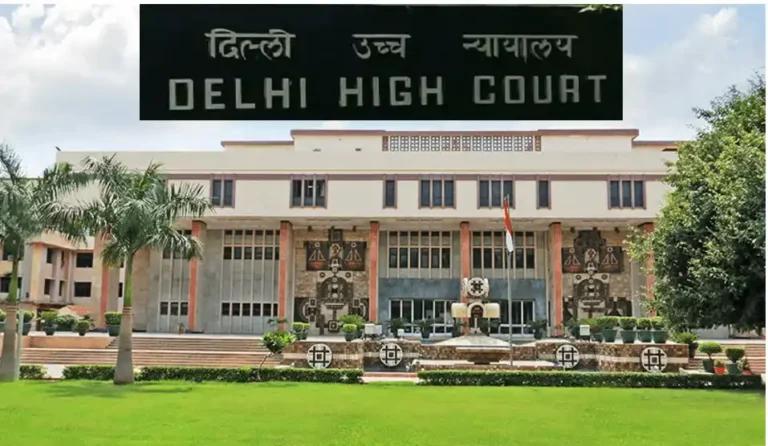The Delhi High Court on May 7 reserved its verdict on the pleas filed by the Foundation of Independent Journalism, which operates the news platform 'The Wire', and its editor Ajoy Ashirwad Mahaprastha. The pleas challenged an order that summoned them in a criminal defamation case initiated by former Jawaharlal Nehru University (JNU) professor Amita Singh.
Representing the petitioners, senior advocate Shadan Farasat contended that the primary ground for challenging the summoning order was non-compliance with the procedure under Section 223 of the Bharatiya Nyaya Sanhita Samhita (BNSS). According to him, the provision mandates that a Magistrate, while taking cognizance of an offence, must issue a pre-summoning notice to the accused. He argued that this mandatory requirement was ignored in this case.
Section 223 BNSS stipulates that a Magistrate must examine the complainant and witnesses on oath when a complaint is filed, with the details of this examination being documented and signed by the complainant, witnesses, and the Magistrate. The first proviso of the section explicitly states:
"Provided that no cognizance of an offence shall be taken by the Magistrate without giving the accused an opportunity of being heard."
Farasat further argued that the situation under the Criminal Procedure Code (CrPC) was different earlier, but now the issuance of notice before summoning is compulsory under BNSS.
He also presented a secondary argument, stating that the notice was sent to 'The Wire' through its Chief Editor, even though 'The Wire' itself is not a legal entity. He asserted that while the Chief Editor could have been made a party, mentioning 'The Wire through Chief Editor' was legally incorrect.
In response, Singh's counsel maintained that once an inquiry begins, it is considered prospective in nature. He referred to Section 531(2) BNSS, which provides that ongoing appeals, applications, trials, inquiries, or investigations as of the commencement date of BNSS would continue under the CrPC as if the new law had not come into force.
Section 531(2) BNSS reads:
"Notwithstanding such repeal- (a) if, immediately before the date on which this Sanhita comes into force, there is any appeal, application, trial, inquiry or investigation pending, then, such appeal, application, trial, inquiry or investigation shall be disposed of, continued, held or made, as the case may be, in accordance with the provisions of the Code of Criminal Procedure, 1973, as in force immediately before such commencement."
The counsel argued that an inquiry under Section 202 CrPC was completed in 2016, and the matter even reached the Supreme Court, which remanded it to the Magistrate's stage of summons. He further claimed that the petitioners had concealed a key order where JNU had officially declared that no such 'Dossier' existed, which was the subject of the allegedly defamatory article.
Farasat highlighted that the matter was previously quashed by the Delhi High Court in March 2023. However, Singh appealed to the Supreme Court, which set aside the High Court's order on July 24, 2024. The Supreme Court observed that the High Court had exceeded its jurisdiction, stating:
"Though, arguments have been made at length, we are of the view that the High Court has certainly exceeded its jurisdiction. Section 204 of the Cr.P.C., as it then was, merely facilitates a Magistrate who, upon entertaining a private complaint, has to proceed further by issuing summons for which purpose he has to satisfy the existence of sufficient grounds."
The apex court remitted the matter to the Magistrate for reconsideration, without expressing any opinion on the merits. It directed the Magistrate to reassess the issue of summons afresh.
Farasat pointed out that this Supreme Court order, dated July 24, 2024, came after the BNSS came into effect on July 1, 2024. He argued that for Section 531(2) BNSS to apply, proceedings must have been pending on June 30, 2024, which was not the case because the High Court had already quashed the proceedings by then. He further asserted that the revival of proceedings by the Supreme Court on July 24 did not fall under the purview of BNSS.
Countering this, Singh’s counsel referenced multiple high court judgments, asserting that a Special Leave Petition (SLP) is a continuation of the proceedings. Therefore, the matter was still pending when the BNSS came into effect.
After hearing both sides, Justice Neena Bansal Krishna observed, "Your main argument is that there is nothing pending. He is saying appeal is continuation of the proceedings and therefore you cannot say it is not pending. That is the short question... Arguments heard. Order in Chamber... There is only a technical objection whether BNSS would apply or CrPC. I am just confining myself to that."
Background of the Case
The case originates from a complaint filed by former JNU professor Amita Singh in 2016. She accused 'The Wire' of defaming her through an article written by its Deputy Editor Ajoy Ashirwad Mahaprastha. The article, published in April 2016, was titled "Dossier Call JNU 'Den of Organised Sex Racket'; Students, Professors Allege Hate Campaign."
Singh claimed that the article falsely portrayed her as the author of a dossier depicting JNU as a hub of illegal activities, including an organized sex racket. She alleged that the article was published without verifying the authenticity of the so-called dossier, causing harm to her reputation.
The summoning order against 'The Wire's Editor Siddharth Bhatia and Deputy Editor Ajoy Ashirwad was initially passed by a Delhi Metropolitan Court in 2017. The complaint also alleged that the accused engaged in a hate campaign to malign Singh’s reputation.
With arguments concluded, the Delhi High Court has now reserved its verdict on the pleas by 'The Wire' and its editor against the summoning order. The court's decision is eagerly awaited as it could have significant implications for media platforms and defamation laws in India.
Case title : FOUNDATION FOR INDEPENDENT JOURNALISM V/s AMITA SINGH and another petition














